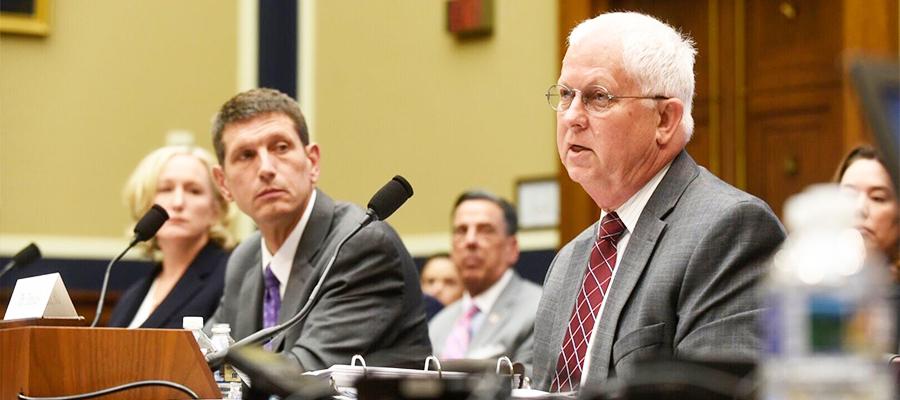House Subcommittee Hosts Hearing Examining 340B Legislative Proposals

Pictured from left to right: Debra Patt, M.D., executive vice president of Texas Oncology, Charles Daniels, pharmacist-in-chief and associate dean at the University of California, San Diego, and Frederick Cerise, M.D., president and CEO of Parkland Health & Hospital System in Dallas.The House Energy and Commerce Subcommittee on Health today hosted a hearing focused on the 340B drug savings program, including examining more than a dozen legislative proposals that would make changes to the program.
In a statement submitted for the hearing, AHA expressed support for a number of proposals, including:
- reversing a Centers for Medicare & Medicaid Services final rule that reduces by nearly 30%, or $1.6 billion, Medicare reimbursement to certain public and non-profit hospitals for outpatient drugs purchased under the 340B program (H.R. 4392 and H.R. 6071);
- increasing parity in transparency requirements between 340B covered entities and drug manufacturers (H.R. 6071); and
- allowing 340B-eligible hospitals subject to the orphan drug exclusion to purchase orphan drugs through the 340B program when the drugs are used to treat an illness other than the rare conditions for which the orphan drug designation was given.
In addition, AHA expressed opposition to and concerns about a number of bills and discussion drafts under consideration by the committee.
“We continue to oppose efforts to decrease the size and scope of the program or that add overly burdensome and unworkable reporting requirements on covered entities that do not improve access to care for vulnerable communities,” AHA said.
During the hearing, the subcommittee heard testimony from Frederick Cerise, M.D., president and CEO of Parkland Health & Hospital System in Dallas; Charles Daniels, pharmacist-in-chief and associate dean at the University of California, San Diego; and Debra Patt, M.D., executive vice president of Texas Oncology.
Cerise discussed how his organization, which serves low-income patients, uses 340B savings to benefit its patients and community. “The 340B savings allow the health system to administer free and reduced-cost medicines, often at a lower cost than 340B prices, to low-income patients, which is a benefit to both those patients and the taxpayers,” he said.
Daniels explained how the program helps safety-net health care providers to invest upfront in patients’ needs to avoid costlier care from the state or federal government down the road. “UC San Diego Health, like the other medical centers in the UC health system, uses the benefits from the 340B program to provide not only medications, but also a comprehensive array of high-quality primary care and specialty care services to patients in underserved communities across the state of California,” he said.
Daniels said that if the hospital lost its 340B savings, it would negatively impact the organization’s ability to provide free or discounted drugs and reduce access to care.
In addition, Debra Draper, director of the health care team at the Government Accountability Office, discussed its recent report that recommended that the Health Resources and Services Administration take additional steps to ensure contract pharmacies comply with 340B program requirements.

